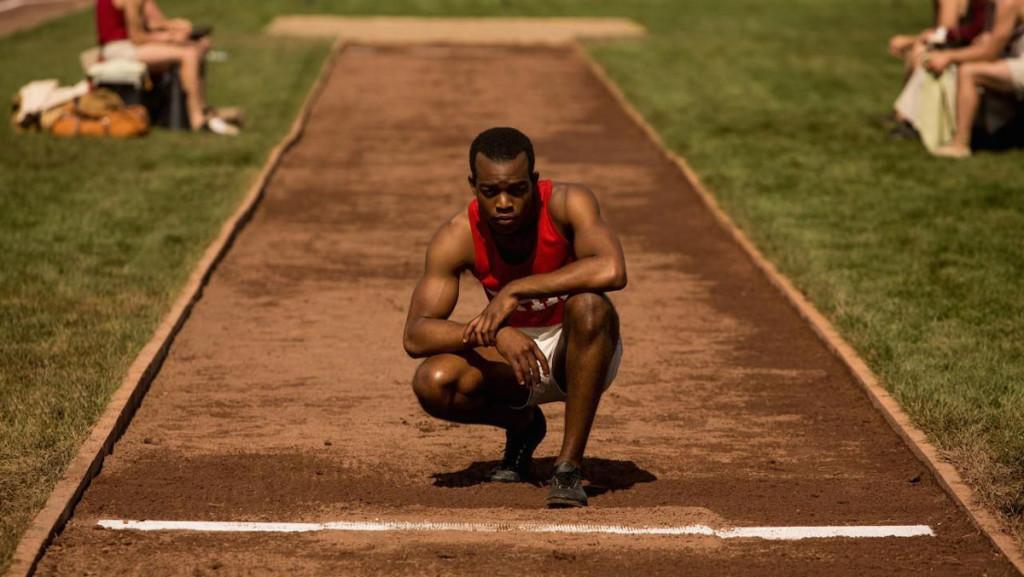Following his recruitment as a runner, Jesse Owens (Stephan James), a talented African-American athlete, arrives on the campus of Ohio State University, which is to be his new training ground for what lies ahead. He is introduced to Larry Snyder (Jason Sudeikis), head coach of track and field, who becomes his mentor and guide through the difficulties to come. Snyder convinces Owens that records don’t matter, since someone can take them from you. What truly matters are medals, as they are in one’s name forever. At the 1936 Berlin Olympics, for which he would later qualify, Jesse Owens would receive four gold medals for the United States. This is the story of director Stephen Hopkins’ film “Race.”
“Race” is a story about succeeding against adversity set against the backdrop of a racist world in 1930s America and pre-war Nazi Germany. It is the account of a determined runner with no desire to take on the powers that be but who rises to the occasion.
From the beginning, it is evident that the title of the film holds more than one meaning. Its main meaning, of course, is in reference to Owens’ running career and specifically to the main setting of the film, the Olympic Games. But as the story of a black athlete, it also reflects the racial strife in the United States and Nazi Germany during the ’30s. The film asserts this historical truth and devises to depict it directly.
Facing racial strife on and off the field, Owens resolves nevertheless to continue racing, but when he questions his involvement, his coach is there to remind him of his natural skill and ability. Meanwhile, in New York City, members of the International Olympic Committee, headed by Avery Brundage (Jeremy Irons) and Jeremiah Mahoney (William Hurt) debate whether or not America should participate in the games, given Adolf Hitler’s rise in Germany. Brundage and Mahoney disagree in their views on this issue, a difference reflected in the general populace at the time. As expected, the final decision is that the United States will be represented at the games, but it is made clear that there is still a divide, even following the committee’s vote.
Hopkins succeeds in depicting historical events truthfully and authentically while maintaining a lively momentum in which every scene builds on the next and centers on the overall plot leading up to the Olympic Games.
At the same time, the film works to address the very personal effect of the times and the challenges faced by this man. James does an even-handed job in portraying this inner conflict and thoroughly does justice to Owens and his lasting legacy, as illustrated in a pivotal scene in which Owens is confronted by his coach in a heated moment. Owens defends his role as a husband and father, which makes it difficult for him to seriously consider going abroad to compete in the games.
The film directs the audience toward the jarring ironies that always exist with racial tensions in authoritarian states, like Nazi Germany, such as the idea that this tremendous athlete was somehow inferior for being black. At the same time, viewers see that Joseph Goebbels (Barnaby Metschurat), right-hand man to Hitler, has his own handicap, which is a limp. This inclusion illustrates the true paradox of the goals of the Nazi Party, which promote the Aryan race as being superior.
The running scenes in “Race” are of a high-definition quality, which makes audience members feel as though they are right in the action alongside Owens. This is especially interesting given the historical nature of the film.
The cinematography on location in Germany lent a reality to the history, especially the contrast of the grandiose shots of the construction of the Olympic Stadium with the shots showing Jewish-owned businesses being ransacked. This serves to highlight the inconsistencies within the Nazi Party, trying, on the one hand, to demonstrate its power by hosting the Olympics, but, on the other hand, demonstrating its superiority, which ultimately leads to its demise.
Most of the scenes with Owens by himself have a dark, in-shadow tone, or are even shot at dawn or night. This serves to reflect his inner turmoil, struggle and even the displacement he feels before deciding to compete in the games. Toward the end of the film, most of the scenes are of a brighter tone, which serves to mirror his final epiphany that he belongs in the games.
On the surface, “Race” may appear to be only a historical or biographical film, but it is much more than that deep down. It is an inspiring account of a man who didn’t give up on his ambitions, despite facing much adversity, and the film reflects this triumph.




















